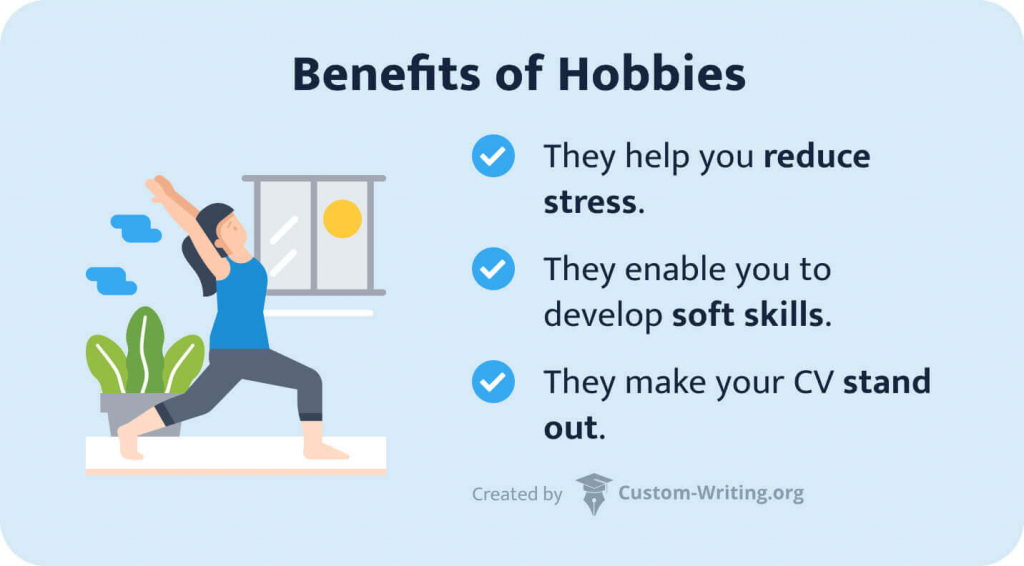Unleashing the Earning Potential of Your Favorite Activities
Engaging in hobbies can be a great way to unwind and express oneself, but did you know that some hobbies can also generate income? In recent years, the concept of monetizing hobbies has gained significant attention, as people seek to turn their passions into profitable ventures. Hobbies you can make money from are no longer a rarity, and with the right mindset and strategy, anyone can capitalize on their interests.
According to a survey, over 75% of people engage in hobbies outside of work, and a significant portion of them have the potential to generate income. Whether it’s selling handmade crafts, offering services as a freelancer, or creating and selling digital products, the opportunities are endless. By exploring hobbies that can make money, individuals can not only earn extra income but also pursue their passions and interests.
This article will delve into the world of profitable hobbies, exploring various activities that can generate income. From creative pursuits to outdoor enthusiasts, tech-savvy hobbies, and service-based activities, we’ll examine the possibilities and provide actionable advice for those looking to turn their hobbies into income streams.
By the end of this article, readers will have a comprehensive understanding of the various hobbies that can make money and the steps required to get started. Whether you’re looking to supplement your income, pursue a full-time business, or simply explore new opportunities, this article will provide the insights and inspiration needed to unleash the earning potential of your favorite activities.
How to Identify Lucrative Hobbies and Get Started
Identifying hobbies that can generate income requires research, analysis, and a bit of creativity. To get started, it’s essential to understand the market demand for your hobby. Research online marketplaces, social media, and forums to see what people are looking for and what they’re willing to pay for. This will help you determine if your hobby has the potential to be profitable.
Assessing competition is also crucial. Look at what others are doing in your niche and identify gaps in the market that you can fill. This will help you differentiate yourself and increase your chances of success. Additionally, evaluate the required skills and resources needed to monetize your hobby. Consider the time, money, and effort required to get started and whether you have the necessary resources to succeed.
Once you’ve identified a lucrative hobby, it’s time to get started. Begin by developing a business plan, including setting clear goals, target markets, and revenue streams. Create a schedule and stick to it, dedicating time each day or week to work on your hobby. Start small, testing your products or services with a small audience before scaling up.
For example, if you’re interested in monetizing your hobby of photography, start by offering your services to friends and family. Use social media to promote your work and attract new clients. As you gain more experience and build a portfolio, you can start to offer your services to a wider audience and increase your prices.
Remember, turning your hobby into a profitable venture takes time, effort, and patience. But with the right mindset and strategy, you can turn your passion into a successful business. By following these tips and staying focused, you can unlock the earning potential of your hobby and start generating income from something you love.
Creative Pursuits: Making Money from Art, Music, and Writing
Creative hobbies such as art, music, and writing can be lucrative ventures for those who are passionate about them. With the rise of online marketplaces and social media, it’s easier than ever to showcase and sell creative work. For example, artists can sell their work on platforms like Etsy or Redbubble, while musicians can offer lessons or sell their music on streaming services.
Freelance writing is another creative pursuit that can generate income. With the increasing demand for high-quality content, writers can offer their services to businesses and individuals looking for engaging articles, blog posts, and website content. Platforms like Upwork and Freelancer make it easy to find clients and showcase writing skills.
Success stories abound in the creative industries. For instance, artists like Emily Hughes and Lisa Congdon have built successful careers selling their art online. Musicians like Amanda Palmer and Pomplamoose have leveraged social media and crowdfunding to fund their music and connect with fans. Writers like Neil Gaiman and Hugh Howey have built lucrative careers self-publishing their work and connecting with readers online.
To get started with a creative hobby, it’s essential to develop a strong portfolio and online presence. This can include building a website or social media profile showcasing your work, as well as networking with other creatives in your industry. Offering free or low-cost services can also help build a client base and generate buzz around your work.
Additionally, consider offering online courses or tutorials teaching others your creative skills. Platforms like Udemy and Skillshare make it easy to create and sell online courses, and can be a lucrative way to monetize your expertise. By leveraging your creative talents and building a strong online presence, you can turn your hobby into a profitable venture.
Outdoor Enthusiasts: Monetizing Hobbies like Photography, Gardening, and Sports
Outdoor enthusiasts can turn their passions into profitable ventures by monetizing hobbies like photography, gardening, and sports. Photography, for instance, can be a lucrative hobby, with opportunities to sell photos on stock image websites, offer photography services to clients, or teach photography workshops.
Gardening is another outdoor hobby that can generate income. Gardeners can sell their produce at farmers’ markets, offer gardening services to homeowners, or create and sell gardening-related products, such as planters or gardening tools. Sports enthusiasts can also monetize their hobby by offering coaching or training services, creating and selling sports-related products, or participating in sponsored events.
For example, outdoor enthusiasts like Chris Burkard and Jimmy Chin have built successful careers as adventure photographers, selling their photos and offering photography workshops. Gardeners like Curtis Stone and Justin Rhodes have created successful businesses selling produce and offering gardening services. Sports enthusiasts like Tony Hawk and Shaun White have built lucrative careers as professional athletes, creating and selling sports-related products and participating in sponsored events.
To get started with monetizing an outdoor hobby, it’s essential to identify the opportunities and challenges associated with the hobby. Research the market demand for your hobby and assess the competition. Evaluate the required skills and resources needed to monetize your hobby and create a plan to get started.
Additionally, consider offering online courses or tutorials teaching others your outdoor skills. Platforms like Udemy and Skillshare make it easy to create and sell online courses, and can be a lucrative way to monetize your expertise. By leveraging your outdoor passions and building a strong online presence, you can turn your hobby into a profitable venture.
Tech-Savvy Hobbies: Making Money from Coding, Gaming, and Online Communities
Tech-savvy individuals can turn their hobbies into profitable ventures by monetizing their skills in coding, gaming, and online communities. Coding, for instance, can be a lucrative hobby, with opportunities to create and sell software, offer coding services to clients, or participate in coding competitions.
Gaming is another tech-related hobby that can generate income. Gamers can create and sell gaming content, such as walkthroughs or tutorials, offer gaming services to clients, or participate in gaming tournaments. Online communities, such as forums or social media groups, can also be monetized by creating and selling digital products, offering services to members, or participating in affiliate marketing.
For example, tech-savvy individuals like Markus Persson and Jens Bergensten have built successful careers as game developers, creating and selling popular games like Minecraft. Coders like Matt Mullenweg and Mike Little have created successful businesses offering coding services and creating software. Online community creators like Chris Brogan and Mari Smith have built successful careers creating and selling digital products and offering services to their communities.
To get started with monetizing a tech-related hobby, it’s essential to identify the opportunities and challenges associated with the hobby. Research the market demand for your hobby and assess the competition. Evaluate the required skills and resources needed to monetize your hobby and create a plan to get started.
Additionally, consider offering online courses or tutorials teaching others your tech skills. Platforms like Udemy and Skillshare make it easy to create and sell online courses, and can be a lucrative way to monetize your expertise. By leveraging your tech skills and building a strong online presence, you can turn your hobby into a profitable venture.
Service-Based Hobbies: Turning Skills into Income Streams
Service-based hobbies can be a lucrative way to monetize your skills and interests. Pet-sitting, house-sitting, and tutoring are just a few examples of service-based hobbies that can generate income. By offering these services, individuals can turn their hobbies into profitable ventures and create a steady stream of income.
For instance, pet-sitting and house-sitting can be done through platforms like Rover or Care.com. These platforms connect pet owners and homeowners with individuals who are willing to take care of their pets or homes while they are away. By offering these services, individuals can earn a steady income and turn their hobby into a profitable venture.
Tutoring is another service-based hobby that can generate income. Individuals with expertise in a particular subject can offer tutoring services to students who need help. This can be done in-person or online, and can be a lucrative way to monetize your skills and interests.
Other service-based hobbies that can generate income include photography, graphic design, and web development. By offering these services, individuals can turn their hobbies into profitable ventures and create a steady stream of income.
To get started with monetizing a service-based hobby, it’s essential to identify the opportunities and challenges associated with the hobby. Research the market demand for your hobby and assess the competition. Evaluate the required skills and resources needed to monetize your hobby and create a plan to get started.
Additionally, consider creating a professional website or social media profile to showcase your services and attract clients. By leveraging your skills and interests, you can turn your hobby into a profitable venture and create a steady stream of income.
Building a Business: Scaling Your Hobby into a Full-Time Venture
Once you’ve identified a profitable hobby and started generating income, it’s time to think about scaling your hobby into a full-time business. This requires careful planning, execution, and a willingness to take calculated risks. In this section, we’ll explore the key steps to building a successful business from your hobby.
First, it’s essential to develop a solid business plan that outlines your goals, target market, and financial projections. This will help you stay focused and ensure that your business is profitable. Next, you’ll need to establish a strong online presence, including a professional website and social media profiles.
Marketing is also crucial to building a successful business. You’ll need to develop a marketing strategy that reaches your target audience and sets you apart from the competition. This may include content marketing, paid advertising, and email marketing.
Finance is another critical aspect of building a business. You’ll need to manage your finances carefully, including tracking expenses, managing cash flow, and making smart investments. Operations are also essential, including managing inventory, shipping, and customer service.
Examples of successful entrepreneurs who have turned their hobbies into businesses include Sara Blakely, who turned her hobby of creating footless pantyhose into a successful business, and Matt Mullenweg, who turned his hobby of creating software into a successful business.
To scale your hobby into a full-time business, it’s essential to be willing to take calculated risks and adapt to changing circumstances. This may include hiring employees, outsourcing tasks, and expanding your product or service offerings.
By following these steps and staying focused on your goals, you can turn your hobby into a successful business and achieve financial freedom.
Overcoming Obstacles: Common Challenges and Solutions for Monetizing Hobbies
Monetizing a hobby can be a challenging but rewarding experience. However, many individuals face common obstacles that can hinder their progress. In this section, we’ll discuss some of the most common challenges and offer solutions and advice on how to overcome them.
Self-doubt is a common obstacle that many individuals face when trying to monetize their hobby. It’s natural to feel uncertain about the viability of your hobby as a business, but it’s essential to remember that every successful entrepreneur started somewhere. To overcome self-doubt, focus on your strengths and the value you can offer to others.
Competition is another obstacle that can be challenging to overcome. With so many people trying to monetize their hobbies, it can be difficult to stand out from the crowd. To overcome competition, focus on differentiating yourself and offering unique products or services that meet the needs of your target market.
Time management is also a common challenge faced by individuals trying to monetize their hobbies. With so many demands on your time, it can be difficult to balance your hobby with other responsibilities. To overcome time management challenges, create a schedule and prioritize your tasks. Focus on the most important tasks first, and delegate or outsource tasks when possible.
Other common obstacles include lack of funding, limited resources, and uncertainty about how to get started. To overcome these obstacles, consider seeking funding from investors or crowdfunding platforms, leveraging free or low-cost resources, and seeking guidance from mentors or online courses.
By overcoming these common obstacles, you can successfully monetize your hobby and achieve financial freedom. Remember to stay focused, adapt to changing circumstances, and continually evaluate and improve your strategy.







